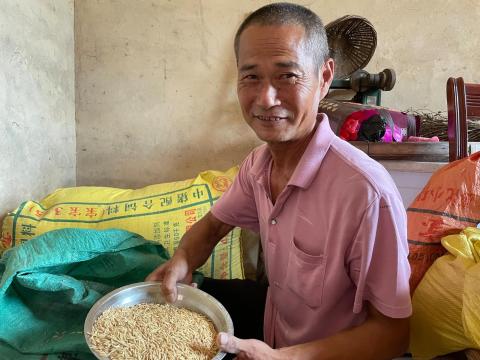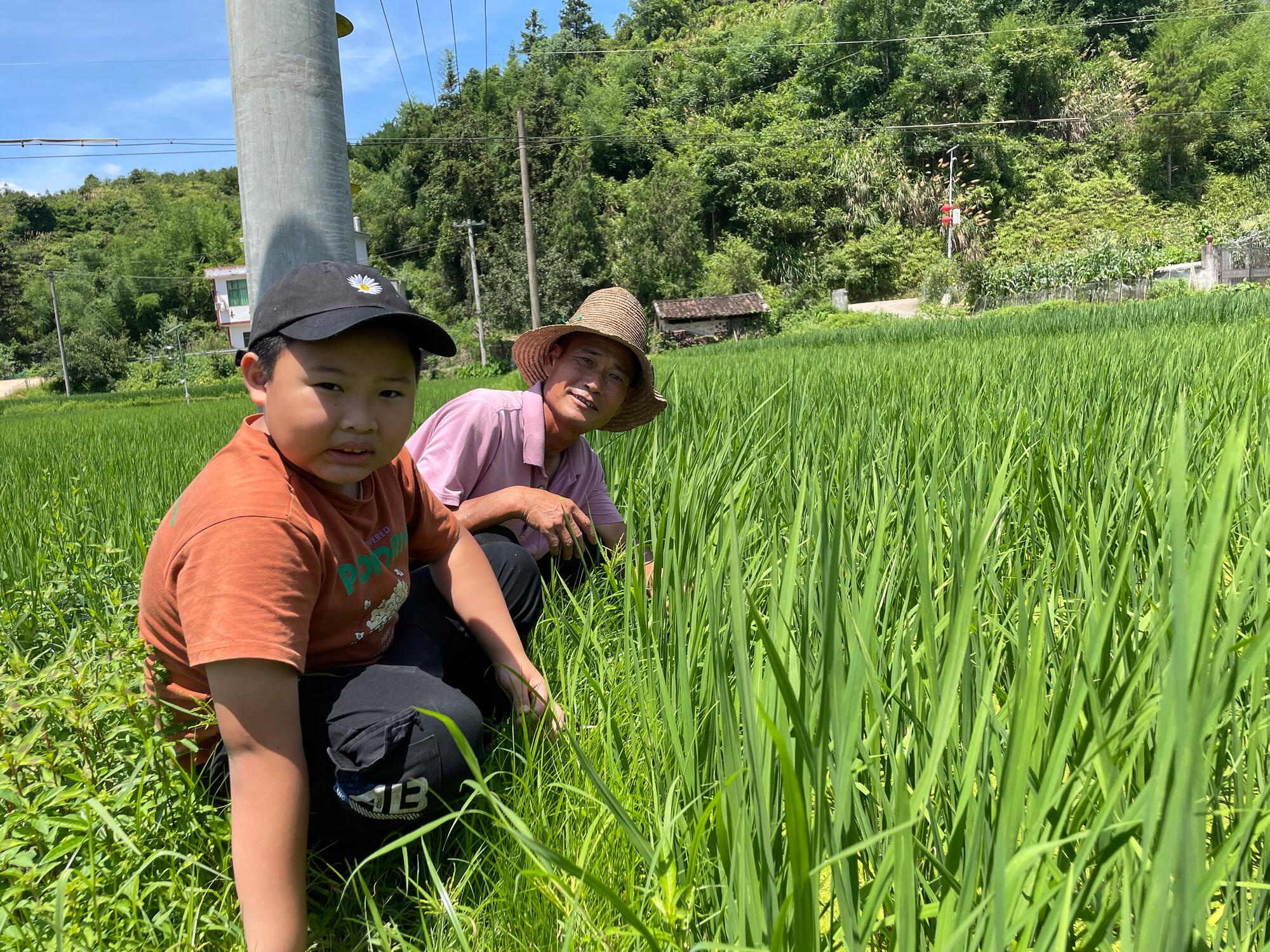Looking forward to the Autumn Gold

Cicadas sing loudly in the hot summer. Under the bright sun, Tang, a member of the Suichuan Qunxing Ecological Planting Cooperative, works hard to weed the rice fields like a sea of emerald greens, caring for the healthy growth of his ecological rice.
57-year-old Tang is plain and quiet with a reserved smile. He faces the loess and his back to the sky. This is his moment of easiness. Tang, his wife, and their three lovely grandchildren live in a small self-built bungalow with a tile roof next to the bushes, in the countryside of Suichuan County.
In the past, Tang, like many farmers, planted hybrid rice in his 12-acre field, applied chemical fertilizers, and used chemical pesticides. The use of pesticides and chemical fertilizers reduces the fertility of the land, and the soil is prone to compaction, which affects cultivation and harvest; and the taste of hybrid rice is mediocre, resulting in high investment but low income. At that time, Tang worked hard to apply chemical fertilizers and pesticides, but one harvest could only earn him about CNY 10,000 yuan, which could barely support the family. The juniors of the family who go out to work have an annual income of only CNY 50,000 to 60,000 yuan, and the family is struggling.
In 2015, Tang participated in World Vision's eco-farming project in the village. Through study and visits, Tang learned how to make ecological compost, fermentation, and the use of potassium fertilizer. At the same time, he also learned how to effectively prevent soil compaction, which provided great help for the conservation of the family's cultivated land, daily cultivation, and improvement of field yield. After switching to planting ecological rice, Tang's annual rice income has increased by 50%, from about CNY 10,000 yuan to about CNY 15,000 yuan. This has strengthened Tang's confidence in eco-farming.
In addition, to reduce the burden of manual labour, Tang cultivates rice with paddy duck. Tang said, "In the past, to grow hybrid rice, we had to use chemical fertilizers and pesticides, which increased the labour burden. Now, paddy ducks go to the rice fields to eat insects, which is helpful to labour. It is also effective in weeding." At night when the ducks go to sleep, Tang will turn on the pest control lamp to protect the paddy from pests. After the ducks grow up, they can also be sold in the market. The ducks raised in their own rice fields are more delicious and firmer than the meat ducks fed with pure feed, and consumers feel more at ease when eating them.
In addition to planting ecological rice, the learning of ecological vegetable cultivation in the eco-farming project is also a part that Tang likes very much. The cultivation of ecological vegetables will not only allow the whole family to eat more tender and refreshing vegetables, make the family eat healthier and more at ease, but also help supplement the family's income to a certain extent.
The rice fields are lush and flourished, and the children are thriving. Looking forward to the future, Tang "hopes that World Vision will continue to help and support our eco-farming". He also hopes to "expand the scale of eco-farming, increase the family's income, and allow children to live and grow better."

The seedlings planted in late spring have grown vigorously under the protection of Tang and his paddy field ducks. Now, during the scorching heat of summer, Tang goes to the fields to water and weed every day. Then, in September, they would harvest a piece of healthy and delicious autumn gold.
Since 2015, World Vision has promoted the development of eco-farming in project townships in Suichuan County, Jiangxi Province. The project supports the development of eco-farming in communities. By going out for study, training, and visits, farmers are encouraged to participate in eco-farming and farmers' planting techniques and methods as well as their knowledge and understanding of the market value chain are improved, thereby increasing farmers' income and promoting farmers to use more environmentally friendly farming methods, providing children in communities with a safer diet and a healthier growth environment.
In addition to carrying out ecological projects, World Vision is also carrying out child protection projects in Suichuan, building roads for communities, installing solar lights, and operating children centers to improve children's life skills and self-protection ability. To help communities develop comprehensively in a child-focused manner.